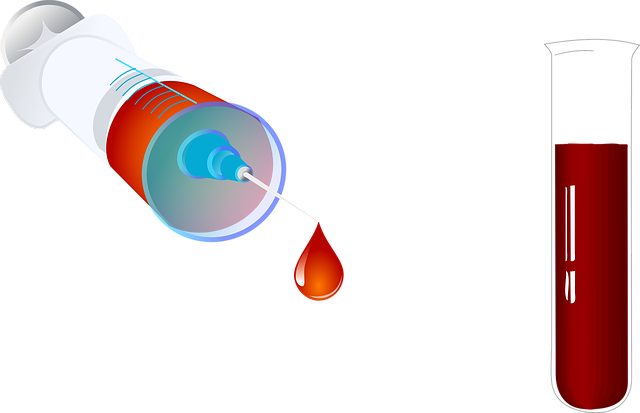A fasting blood sugar test (FBT) is a key screening tool for diabetes, measuring glucose levels after an 8-12 hour fast. Results indicate glycemic control, helping to identify prediabetes or early diabetes signs. Understanding FBT implications empowers individuals at risk to take proactive steps towards managing their blood sugar health through lifestyle changes or medical interventions. Preparing for a Diabetes blood test involves fasting, avoiding certain substances, and informing your healthcare provider about medications. Interpreting results requires understanding normal (below 100 mg/dL), pre-diabetic (100–125 mg/dL), and diabetic (126 mg/dL or higher) blood sugar levels. Healthcare providers use these numbers along with other factors to assess diabetes risk and recommend next steps, potentially preventing or delaying type 2 diabetes onset.
Discover the power of a fasting blood sugar test as a crucial tool in assessing your diabetes risk. This simple yet insightful procedure provides vital information about your body’s glucose control, offering early clues about potential insulin resistance or prediabetes. By understanding how to prepare and interpret your results, you can take proactive steps towards better health. Learn how this Diabetes blood test can guide you toward making informed choices for a healthier future.
- Understanding Fasting Blood Sugar Tests
- Why is it Important for Diabetes Risk Assessment?
- Preparing for and Interpreting Your Results
Understanding Fasting Blood Sugar Tests
A fasting blood sugar test is a crucial diabetes blood test that provides valuable insights into an individual’s glucose control. This simple procedure involves measuring the amount of glucose (sugar) in your blood after a period of fasting, typically 8-12 hours without food or drink (except water). Fasting allows healthcare professionals to assess your body’s baseline sugar levels, which can help identify prediabetes or early signs of diabetes.
Understanding this test is essential for those at risk of diabetes or anyone interested in managing their blood sugar health. The results can indicate whether further testing is necessary and guide lifestyle changes or medical interventions to prevent or manage the condition effectively. By knowing your fasting blood sugar levels, you can take proactive steps towards better overall health.
Why is it Important for Diabetes Risk Assessment?
A fasting blood sugar test plays a pivotal role in diabetes risk assessment, offering crucial insights into an individual’s metabolic health. By measuring the level of glucose (sugar) in the blood after a period of abstinence from food and beverages, except water, this test provides critical data for early detection and prevention strategies.
Understanding one’s fasting blood sugar levels is essential as it helps identify prediabetes—a condition where blood sugar is higher than normal but not yet high enough to be classified as diabetes. This knowledge empowers individuals to make informed decisions about their lifestyle, including diet and exercise choices, which can significantly impact their overall diabetes risk. Early identification through such tests allows for timely interventions, potentially preventing or delaying the onset of type 2 diabetes.
Preparing for and Interpreting Your Results
Preparing for your diabetes blood test is crucial. Fasting for at least 8 hours before the test is essential to ensure accurate results. On the day of the test, it’s important to avoid food and certain beverages like coffee or alcohol, as these can affect your sugar levels. You should also inform your healthcare provider about any medications you’re taking, as some drugs can influence test outcomes.
Interpreting your results involves understanding what the numbers mean. A normal fasting blood sugar level is below 100 mg/dL. Pre-diabetes is indicated by a range of 100–125 mg/dL, while diabetes is diagnosed at 126 mg/dL or higher. Your healthcare provider will consider these results in conjunction with other factors to assess your risk for diabetes and recommend appropriate next steps.
A fasting blood sugar test, or diabetes blood test, is a crucial tool in assessing your risk of developing diabetes. By understanding the significance of this simple procedure and properly preparing for it, individuals can take control of their health. Interpreting the results accurately allows for timely interventions and lifestyle adjustments to mitigate the risk factors associated with diabetes. Remember, early detection through regular check-ups plays a vital role in managing blood sugar levels effectively.
